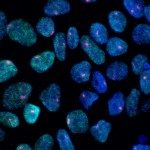Aging is marked by declining tissue repair and increased vulnerability to disease. Cellular plasticity is the ability of cells to acquire new identities and adopt alternative fates in response to changing conditions without genetic mutations. Once considered limited to development, plasticity is now recognized as critical in adult tissues, enabling regeneration after injury and contributing to pathological states such as cancer and aging. Cellular reprogramming technologies exemplify how plasticity can be reactivated in terminal differentiated cells, offering exciting opportunities for regenerative medicine. In contrast, cellular senescence is a stress response that is essential for tissue repair and regeneration; however, when dysregulated, the persistent accumulation of senescent cells drives chronic inflammation, fibrosis, tumorigenesis, and aging.
Our lab investigates cellular senescence and cellular reprogramming, two emerging rejuvenation strategies that converge on cellular plasticity. We explore how senescent cells regulate plasticity during tissue repair and how reprogramming can induce plasticity to mitigate functional decline during aging. At the same time, we study how dysregulated plasticity contributes to tumorigenesis and age-related pathologies. By combining molecular and cell biology, organoid systems, in vivo models, and single-cell technologies, we aim to uncover how plasticity can be modulated to rejuvenate aged tissues and mitigate age-related pathologies.




